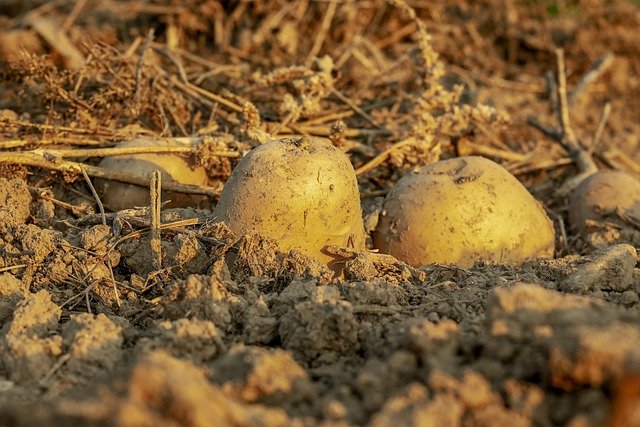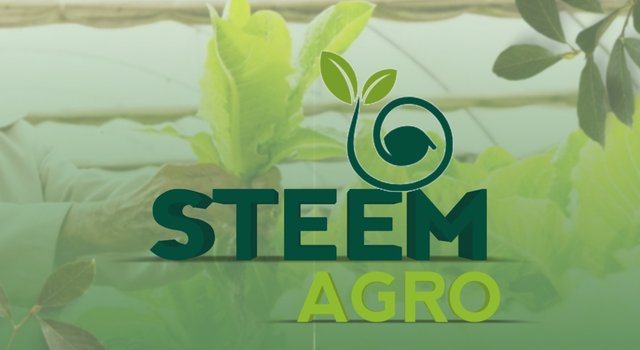Hi guys, it's another interesting time to share my basic knowledge of agriculture, and thanks to the community team. This week's contest is centered on crop propagation, so let's begin...

What Is Crop Propagation? |
|---|
Crop propagation refers to the process of generating new plants from existing ones, guaranteeing the prolongation or continuance of desired genetic traits and characteristics. It engages different techniques to breed or multiply plants, including sexual and asexual techniques.
Crop propagation can equally be defined as the art, science, and technology of breeding or increasing the population of plants to generate new offspring with desirable characteristics, such as genetic fidelity, disease resistance, improved quality, high yields, and pest tolerance.
The objective of crop propagation is to preserve genetic integrity, improve disease resistance, facilitate plant breeding programs, ameliorate crop yields and quality, support biodiversity conservation, as well as ensure food security.
What Are The Different Methods Of Crop Propagation? |
|---|
Methods of crop propagation refers to the specific techniques or procedures utilized within each type of propagation. They include the following:
A. Seed
This method involves the following processes:
Hybridization:
A sexual crop propagation process of crossing two genetically different parents to generate offspring with desirable characteristics. This technique is tailored towards combining the advantageous traits of both parents, resulting in enhanced crop yields, disease resistance, as well as quality.Cross-pollination:
This is the transfer of pollen from the male plant reproductive organ of (anther) to the female plant reproductive organ (stigma) of another plant that results in fertilization and seed production. This process is beneficial for enhancing crop yields, promoting adaptability to environmental changes, and increasing genetic diversity and disease resistance improvement.Open-pollination:
This method of sexual crop propagation allows plants to naturally pollinate without human intervention or control.Selection and planting:
This is a critical step in sexual crop propagation, ensuring the production of high-quality crops.
B. Vegetative
This method of propagation involves the following:
- Stem cutting (e.g., roses, tomatoes)
- Root division (e.g., potatoes, sweet potatoes)
- Grafting (e.g., apples, grapevines)
- Rhizome propagation (e.g., ginger, turmeric)
- Corms (e.g., gladiolus, crocus)
- Leaf propagation (e.g., African violets, succulents)
- Budding (e.g., citrus, mangoes)
- Layering (e.g., strawberries, blackberries)
- Tubers (e.g., potatoes, yams)
C. Tissues
This method of propagation involves the following methods:
- Meristem culture
- Embryo culture
- Somatic embryogenesis
- Callus culture and
- Protoplast Culture
Other methods of propagation include
- Runners; used in the propagation of strawberry and raspberry
- Division of suckers; applied in banana and pineapple propagation
- Basal cutting; propagation method for sugarcane and bamboo
- Offset propagation; Applicable to pineapple and bromeliads
What Is The Importance Of Crop Propagation? |
|---|
The importance of crop propagation ranges from food security to economic development, and environmental sustainability. Here are the significances of crop propagation:
A. Food Security
- Increased availability of food
- Improved nutritional quality
- Diversity and availability of food
- Enhanced crop yields
- Reduced hunger and malnutrition
B. Economic Development
- Rural development and poverty reduction
- Economic stability and growth
- Creation of job and employment
- Export opportunities as well as foreign exchange earnings
- Generation of income for farmers
C. Environmental Sustainability:
- Mitigated environmental degradation
- Soil fertility and conservation
- Biodiversity conservation
- Climate change reduction and adaptation
- Effective water use and management
D. Agricultural Development
- Ameliorated agricultural productivity
- Improved adaptiveness to environmental changes
- Enhanced crop varieties and traits
- Optimal crop management practices
- Heightened resistance to pests and diseases
E. Social Benefits
- Education and training opportunities
- Preservation of cultural and traditional practices
- Enhanced livelihoods for farmers as well as rural communities
- Social cohesion and community development
- Improved food sovereignty and self-sufficiency
F. Scientific Advancements
- Advances in plant breeding and genetics
- Development of new propagation methods
- Genetic and biotechnology engineering
- Improved comprehension of plant physiology
- Enhanced seed quality and availability
G. Importance for Specific Crops
- Energy crops; such as biofuels and bioproducts
- Horticultural crops; This includes fruits, vegetables, flowers**
- Food crops; such as maize, wheat, rice
- Medicinal crops; includes herbs, pharmaceuticals
- Cash crops; like cotton, coffee, cocoa
Crop propagation plays an important role in guaranteeing food security, economic development, as well as environmental sustainability. Its significance and advantage extend to different facets of agriculture, society, and the environment.
List The Different Types Of Crop Propagation. |
|---|
Although the types and methods of crop propagation are related, they are different concepts.
Types of Crop Propagation
This refers to the wide categories or classifications of propagation techniques on the basis of the reproductive traits of plants. Therefore, the main types of crop propagation are:
- Sexual Propagation
- Asexual Propagation
- Micropropagation
Thank you, friend, for reading through; it was quite educating putting this piece together. I want to invite @triple-a, @jovita30, and @ceendy20
X promotion link
Downvoting a post can decrease pending rewards and make it less visible. Common reasons:
Submit
Welcome to steem-agro!
MODs Comment/Recommendation:
Thank you for sharing your entry with us. Please keep sharing quality content.
Remember to always share your post on Twitter using these 3 main tags #steem #steemit $steem

Downvoting a post can decrease pending rewards and make it less visible. Common reasons:
Submit
Downvoting a post can decrease pending rewards and make it less visible. Common reasons:
Submit
Thanks for engaging
Downvoting a post can decrease pending rewards and make it less visible. Common reasons:
Submit